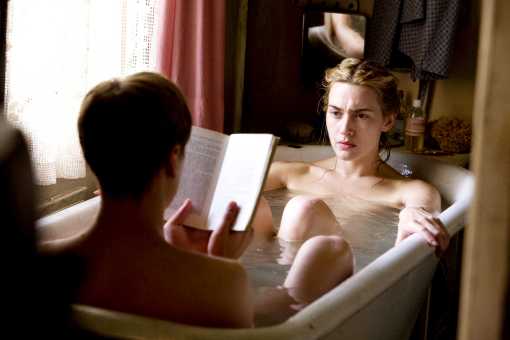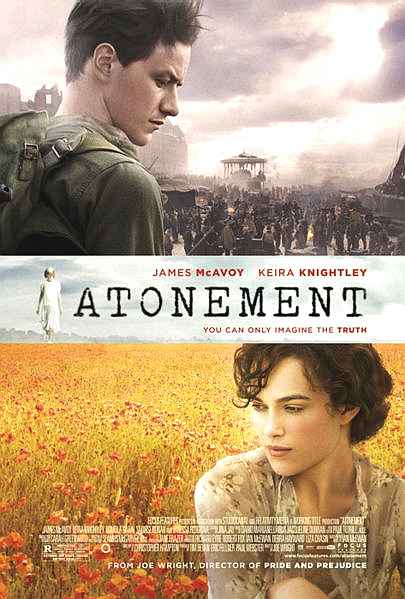
David Kross and Kate Winslet in a scene from The Reader
"What we feel isn't important. It's utterly unimportant. The only question is what we do. If people like you don't learn from what happened to people like me, then what the hell is the point of anything?"
So says Professor Rohl (Bruno Gantz) to a young law student named Michael Berg (David Kross) near the middle of The Reader. Yet it isn't until much later, after Michael has become an adult (and is now played by Ralph Fiennes), after his wife and he have divorced, that he follows his professor's advice, and begins telling his daughter Julia (Hannah Herzsprung) about his affair with Hanna Schmizt (Kate Winslet), and the greatest failing of his youth.
This affair is what begins the movie, as a series of flashbacks experienced by the adult Michael. When he was fifteen, he felt sick on a bus. A woman helps him get home after he vomits near an apartment complex. That woman is Hanna.
He is diagnosed with scarlet fever and spends weeks recovering. When he is well again, he brings flowers over to the complex, finds out where Hanna lives, and gives them to her as a thank you. While waiting outside her apartment as she undresses, he peeks through the door and sees her putting on her tights. She sees him watching her. He runs home.
The next time he is over, he brings up coal to her apartment in a couple of buckets. Having dirtied his face and clothes, she draws up a bath for him. When she drapes a towel over him, she lets it drop, and he discovers that she, too, is naked.
She spends time teaching him different sexual techniques. Then, one day, she asks him what he is reading in school. Soon, he is bringing over his school books to read to her before they make love. During Lady Chatterly's Lover, she mentions that what he is reading is disgusting. When he stops, she asks, "What are you doing? Keep reading."
Then, one day, she vanishes. Michael doesn't meet her again until, as a law student, he attends a trial for S.S. guards. One of the defendants is Hanna.
Two main themes run through this movie, though at first, neither one is apparent. The first is learning from the past. The second is stated most eloquently by Roger Ebert, in his fantastic review of this film. In it, he writes:
Many of the critics of "The Reader" seem to believe it is all about
Hanna's shameful secret. No, not her past as a Nazi guard. The
earlier secret that she essentially became a guard to conceal.
Others think the movie is an excuse for soft-core porn disguised
as a sermon. Still others say it asks us to pity Hanna. Some
complain we don't need yet another "Holocaust movie." None of
them think the movie may have anything to say about them.
I believe the movie may be demonstrating a fact of human nature:
Most people, most of the time, all over the world, choose to go
along. We vote with the tribe.
Indeed, that is the point. Hanna went along with the killing of three thousand Jews. Michael goes along with her guilty plea, even though he knows something about her that renders her innocent of the most serious charges. Both decisions condemn people to fates they don't deserve. The starker example is what Hanna and her fellow guards do when the Jews are trapped in a burning barn, but is it any less wrong to punish one person unjustly, as it is to punish many?
And now we come back to the quote I started this review with. Read it again and ask yourself: who was to blame for the Holocaust? The Nazis? The Germans? Or the whole human race?
